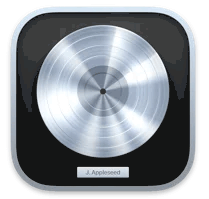Description

Podbean

Riverside
Comprehensive Overview: Podbean vs Riverside
Podbean and Riverside serve distinct yet sometimes overlapping purposes in the digital media landscape, primarily focusing on podcasting and content creation. Here's a comprehensive overview of each:
Podbean
a) Primary Functions and Target Markets:
- Primary Functions: Podbean is a podcast hosting and monetization platform. It provides users with the ability to host, publish, and distribute podcasts easily. Features include custom podcast websites, analytics, customizable players, and integration with other platforms for distribution, such as Spotify and Apple Podcasts. Podbean also offers monetization tools like patron programs, advertisements, and subscription services.
- Target Markets: Podbean targets independent podcasters, small to medium-sized businesses, and enterprise-level organizations seeking to create and distribute podcast content. It is suitable for both novice podcasters due to its user-friendly interface and experienced broadcasters who want advanced analytical insights and monetization strategies.
b) Market Share and User Base: Podbean is one of the established players in podcast hosting. While it doesn't publicly disclose specific user base figures, it is recognized as one of the top hosting services alongside platforms like Libsyn and Anchor. Its market share is supported by its longevity and comprehensive feature set. It is favored by users looking for an all-in-one podcasting solution, from hosting to monetization.
c) Key Differentiating Factors:
- Integrated Monetization: Podbean offers robust monetization options directly on its platform, including premium content subscription and affiliate integrations.
- Podcast Advertising Marketplace: It provides a marketplace for podcasters to connect with advertisers, streamlining ad sales.
- User-Friendly Interface: Known for being beginner-friendly while also offering advanced features for seasoned podcasters.
- Community Engagement: Podbean features include live streaming and some social media-like engagement options, fitting well for user interaction.
Riverside
a) Primary Functions and Target Markets:
- Primary Functions: Riverside is a platform primarily designed for recording high-quality podcasts and video interviews remotely. It allows users to capture separate audio and video tracks, ensuring professional-grade output. Riverside emphasizes high-quality recording without compressed audio or video.
- Target Markets: Riverside targets podcasters, video creators, journalists, and anyone requiring high-fidelity remote interviews. Its clientele largely consists of professional content creators and enterprises focused on delivering high-quality audio-visual content.
b) Market Share and User Base: Riverside is a relatively newer platform compared to Podbean, but it has quickly gained traction due to the increasing demand for remote work and content production solutions. Although it doesn't have the legacy user base of traditional podcast hosts, its niche focus on high-definition remote recording has carved a significant spot in the market, especially in professional content creation spaces.
c) Key Differentiating Factors:
- High-Quality Recording: Riverside distinguishes itself with local recording capabilities, ensuring uncompressed audio and video quality, regardless of internet connection.
- Video Support: The platform supports not just audio but also high-quality video recording, appealing to creators who rely on visual content.
- Editing Tools: Integrated tools for editing audio/video make it easier for creators to produce polished content directly from the platform.
- Browser-Based Simplicity: The platform is entirely browser-based, eliminating the need for software downloads and offering easy access for guests and hosts alike.
Comparative Summary
- Podbean vs. Riverside Functionality: Podbean excels as a content hosting and distribution platform with monetization capabilities, while Riverside is focused on the production side, providing tools for high-quality remote recording.
- User Base and Market Share: Podbean has a larger market share as a podcast hosting provider, given its broader appeal and longevity. Riverside, however, is capturing a dedicated audience in remote content production, thanks to its quality-focused offerings.
- Differentiators: Riverside's strength lies in its fidelity and video capabilities, making it ideal for high-production-value content, whereas Podbean's strength is in hosting and community engagement features, serving a broader range of podcasting needs.
Contact Info

Year founded :
2007
Not Available
Not Available
United States
Not Available

Year founded :
2008
Not Available
Not Available
United States
Not Available
Feature Similarity Breakdown: Podbean, Riverside
Podbean and Riverside.fm are two popular platforms in the podcasting and audio/video recording spaces. Here’s a breakdown of their core features, user interfaces, and unique features:
a) Core Features in Common
-
Recording Capabilities:
- Both platforms offer high-quality recording capabilities. Podbean is primarily focused on audio podcasts, whereas Riverside provides both audio and video recording.
-
Publishing Tools:
- Both platforms have built-in tools for creating episodes, managing content, and publishing it to different channels.
-
Guest Management:
- Both platforms offer options for adding guests. With Riverside, you can invite multiple guests for remote interviews, while Podbean’s live stream feature allows listener call-ins.
-
Analytics:
- They provide analytics features, allowing podcasters to track their audience engagement and gain insights into listener behavior.
-
Cloud Storage:
- Both services provide cloud storage options, ensuring recorded sessions are saved and can be accessed from anywhere.
b) User Interfaces Comparison
-
Podbean:
- Podbean is known for a straightforward, user-friendly interface tailored for podcast management. The dashboard is intuitive with features clearly labeled for publishing, monetization, and analytics. It's designed for ease of use, especially for users who may not be very tech-savvy.
-
Riverside:
- Riverside.fm offers a clean and modern interface focused on recording sessions. It is slightly more technical, with tools for live recording and managing audio and video quality. The workspace is laid out for easy access to recording controls, while also providing real-time monitoring options.
c) Unique Features
-
Podbean:
- Monetization Options: Podbean offers several monetization options, including premium podcasting, patron programs, and advertising.
- Live Streaming: Podbean provides live streaming capabilities that allow podcasters to broadcast and interact with their audience in real-time.
-
Riverside:
- Video Recording: A standout feature of Riverside is its ability to record video as well as audio. This is highly beneficial for content creators looking to expand their offerings beyond traditional audio-only podcasts.
- Local Recording: Riverside records locally on each participant's device, ensuring high-quality, uncompressed audio and video files, which are then uploaded to the cloud for easy editing and sharing.
- Real-time Producer Mode: Allows producers to monitor and manage the recording session in real-time, checking levels and providing feedback.
These platforms serve slightly different needs in the podcasting and content creation space, with Podbean focusing more on the traditional podcasting model with added live streaming, while Riverside caters to those needing high-quality video along with their audio content.
Features

Podcast Hosting and Distribution
Analytics and Insights
Audience Engagement
Monetization Options

User-Friendly Interface
Collaboration Tools
Project Management
Reporting & Analytics
Security & Compliance
Best Fit Use Cases: Podbean, Riverside
Podbean
a) Best Fit Use Cases:
Podbean is a comprehensive podcast hosting solution that is well-suited for:
-
Content Creators and Independent Podcasters: Individuals or small teams looking to create, host, and distribute podcast content easily. Podbean offers intuitive tools that are ideal for creators new to podcasting or those who want a hassle-free way to upload and manage episodes.
-
Small to Medium Enterprises (SMEs): Businesses that want to use podcasting as a medium for content marketing. Podbean’s features like brand customization and monetization (e.g., ads and premium content) can be very effective for SMEs looking to expand audience engagement.
-
Educational Institutions: Schools and universities can use Podbean for educational content distribution. It supports private podcasting, allowing educators to share lectures or course material with students securely.
-
Non-profits and Community Organizations: These organizations can use Podbean to reach their supporters or communities by creating content about their missions, ongoing initiatives, and educational materials.
d) Industry Verticals and Company Sizes:
- Media and Entertainment: Given its ease of use and robust analytics, Podbean is excellent for media companies focusing on audience growth and engagement.
- Education: As previously mentioned, the educational sector benefits greatly from Podbean's ability to distribute coursework.
- Corporate Communications: Suited for internal storytelling or updates within larger corporations, thanks to its private podcasting functionality.
Riverside
b) Preferred Use Cases:
Riverside is primarily a video and audio recording platform, ideal for scenarios that require high-quality recording capabilities:
-
Professional Podcasters and Journalists: Those who need high-end recording quality for remote interviews and multi-track recording, making it perfect for professional audio and video productions.
-
Content Creators Focused on Video Interviews: Podcasters and YouTubers who conduct virtual interviews and need top-quality video and audio to match broadcast standards.
-
Corporate Webinar and Conference Hosts: Companies hosting webinars or virtual conferences can use Riverside for producing high-quality video content, offering an alternative to traditional video conferencing tools.
-
Marketing Agencies: Agencies producing branded content, such as video podcasts or virtual summits, can take advantage of Riverside’s exceptional recording quality.
d) Industry Verticals and Company Sizes:
- Media and Journalism: Riverside's top-tier recording features are essential for media professionals needing reliable, high-resolution content.
- Corporate Media Teams: Suitable for large enterprises with internal media teams responsible for producing frequent, high-quality video content used in marketing and training materials.
- Agencies and Content Studios: For agencies that require professional-grade production quality without the need for in-person recordings.
Summary
Podbean excels in ease of use for audio-only content and is perfect for smaller to medium businesses focusing on podcast hosting and distribution without heavy emphasis on video. Riverside, on the other hand, shines in scenarios demanding professional-grade audio and video recording capabilities, making it ideal for industries and businesses focused on high-production-value content, such as media professionals and larger enterprises.
Pricing

Pricing Not Available

Pricing Not Available
Metrics History
Metrics History
Comparing undefined across companies
Conclusion & Final Verdict: Podbean vs Riverside
When comparing Podbean and Riverside, both platforms offer unique features catering to different aspects of podcasting. The conclusion and final verdict for choosing between them depends on specific needs and use cases.
a) Best Overall Value:
Podbean offers the best overall value for podcasters focused on hosting and monetizing their content, due to its robust hosting capabilities, ease of distribution, and monetization options like ads, subscriptions, and patron support. However, if the priority is high-quality audio/video recording and remote interviewing, Riverside shines with its focus on recording quality and remote collaboration features.
b) Pros and Cons:
Podbean
Pros:
- Comprehensive hosting solutions with unlimited storage and bandwidth.
- Built-in monetization options, including a patron program and dynamic ad insertion.
- User-friendly interface with detailed analytics.
- Seamless distribution to major podcast directories like Apple Podcasts and Spotify.
Cons:
- Limited focus on recording features; more suitable for users who have separate recording solutions.
- Basic editing capabilities, which may require additional software for professional editing needs.
Riverside
Pros:
- High-quality audio and video recording with local file saving for better quality.
- Strong remote recording capabilities, making it ideal for high-fidelity interview formats.
- Integrated editing tools for quick post-production adjustments.
- Backup and separate track recording for easy editing.
Cons:
- Limited hosting features; not a full-scale hosting solution.
- Less focus on distribution and monetization options compared to Podbean.
- Can be more costly if used solely for basic recording functionalities, given its premium recording focus.
c) Recommendations:
-
For Content Creators Focused on Hosting and Monetization: Podbean is a great fit if your goal is to easily host, distribute, and monetize your podcast. It simplifies the process with a comprehensive platform that addresses these core needs effectively.
-
For Creators Prioritizing High-Quality Recording and Remote Interviews: Riverside is ideal for creators who value enhanced audio and video quality, especially in remote settings. It's particularly beneficial for podcasters emphasizing video content or those conducting frequent remote interviews.
-
Bundled Approach for Comprehensive Solutions: Users who seek both high-quality recording and robust hosting capabilities may benefit from using Riverside for recording and Podbean for hosting and distribution. This combination harnesses the strengths of both platforms, albeit at an increased cost.
In conclusion, the decision between Podbean and Riverside should be guided by your primary focus—whether it's superior hosting with Podbean or top-tier recording with Riverside. Each platform has its own strengths tailored for specific aspects of the podcasting process.
Add to compare
Add similar companies



